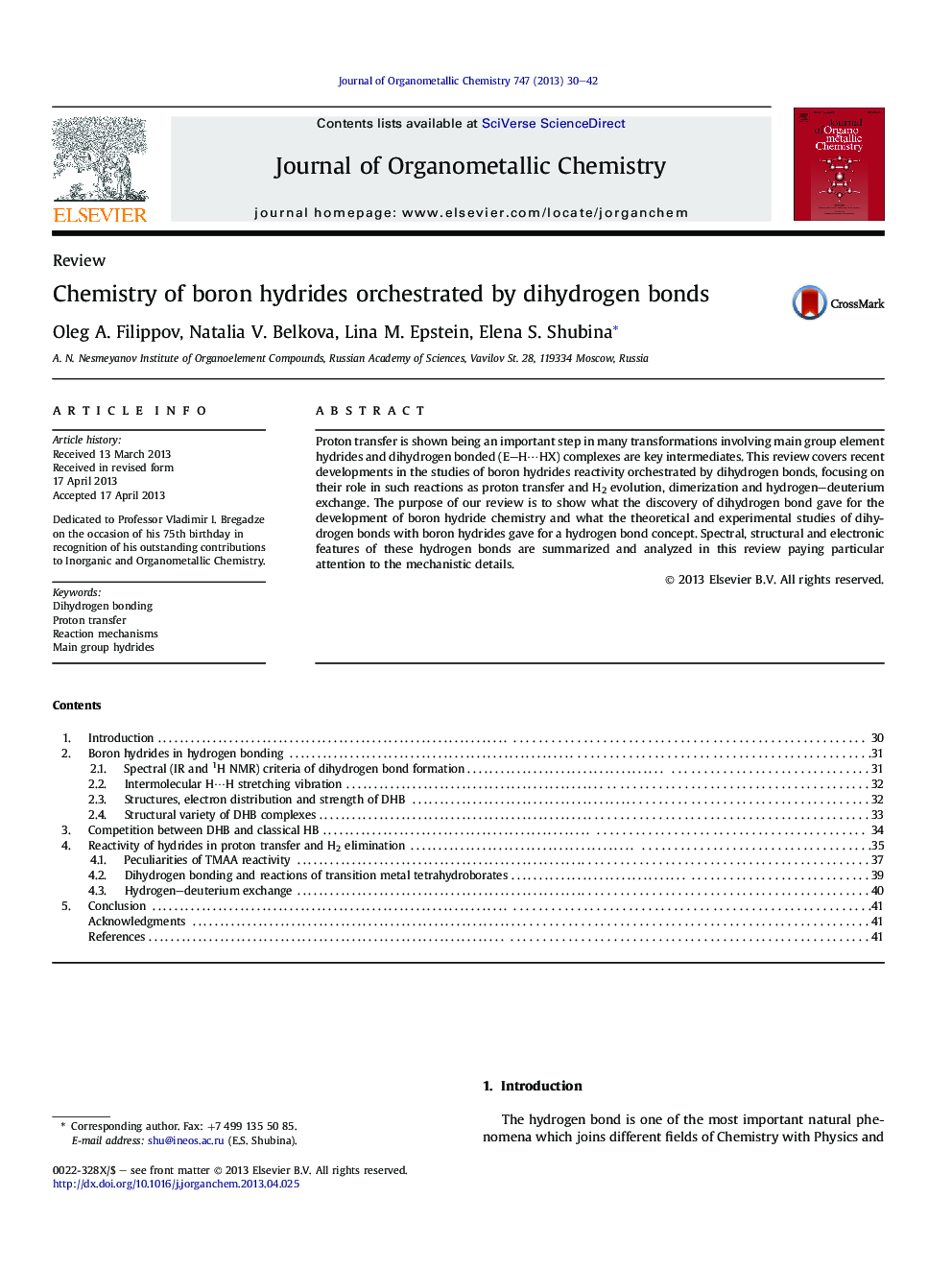| Article ID | Journal | Published Year | Pages | File Type |
|---|---|---|---|---|
| 1323667 | Journal of Organometallic Chemistry | 2013 | 13 Pages |
•Dihydrogen bonded (E–H⋯HX) complexes are the key intermediates.•Dihydrogen bonds control reactivity and selectivity of main group hydrides.•Mechanistic details of dihydrogen bond controlled processes are discussed.
Proton transfer is shown being an important step in many transformations involving main group element hydrides and dihydrogen bonded (E–H⋯HX) complexes are key intermediates. This review covers recent developments in the studies of boron hydrides reactivity orchestrated by dihydrogen bonds, focusing on their role in such reactions as proton transfer and H2 evolution, dimerization and hydrogen–deuterium exchange. The purpose of our review is to show what the discovery of dihydrogen bond gave for the development of boron hydride chemistry and what the theoretical and experimental studies of dihydrogen bonds with boron hydrides gave for a hydrogen bond concept. Spectral, structural and electronic features of these hydrogen bonds are summarized and analyzed in this review paying particular attention to the mechanistic details.
Graphical abstractReview covers recent developments in the studies of boron hydrides reactivity orchestrated by dihydrogen bonds, focusing on their role in such reactions as proton transfer and H2 evolution, dimerization and hydrogen–deuterium exchange.Figure optionsDownload full-size imageDownload as PowerPoint slide
